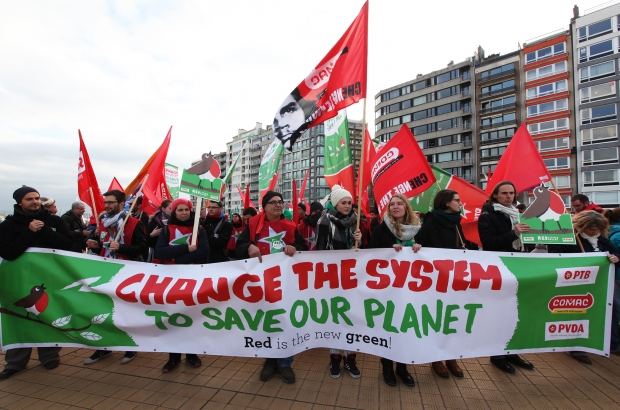- Daily & Weekly newsletters
- Buy & download The Bulletin
- Comment on our articles
Climate agreement reached by regions and federal government
Belgium’s four environment ministers – one from each region and one from the federal government – have finally reached agreement on the policy goals the country will adopt on climate change. The agreement was reached on Friday, six years after the negotiations started and a week after the start of the UN conference on climate change in Paris.
The agreement covers the period 2013 to 2020 and deals with the emission of greenhouse gases and the production of renewable energy. The EU plans to reduce greenhouse emissions by 15% and produce 13% of its total energy from renewable sources.
Belgium’s contribution to the financing of climate measures is €50 million a year – €25 million from the federal government, €14.5 million from Flanders, €8.25 million from Wallonia and €2.25 million from the Brussels-Capital Region.
Achieving the national target on greenhouse emissions will require cuts in Flanders of 15.7%, with 14.7% in Wallonia and 8.8% in Brussels.
The country has a carbon dioxide quota that, under the Emission Trading Scheme, is worth €326 million when emissions quotas are sold to industry. That will be shared out as follows: federal 10%, Flanders 53%, Wallonia 30%, Brussels 7%.
As far as the production of renewable energy is concerned, the total production represented by 13% comes to 4.224 Mtep (million tonnes equivalent of petroleum). Flanders will contribute 2.156 Mtep, Wallonia 1.277 Mtep, Brussels 0.073 Mtep and federal 0.718 Mtep.
“Everyone had to compromise on something,” said Flemish environment minister Joke Schauvliege. “Flanders will do more than was first expected, but that’s also the case for Wallonia and the federal government. Everyone has made an effort to ensure that there was a binding agreement.”
Photo: More than 10,000 protesters took part in a climate march in Ostend on Sunday. ©Arie Asona/Demotix/Corbis














